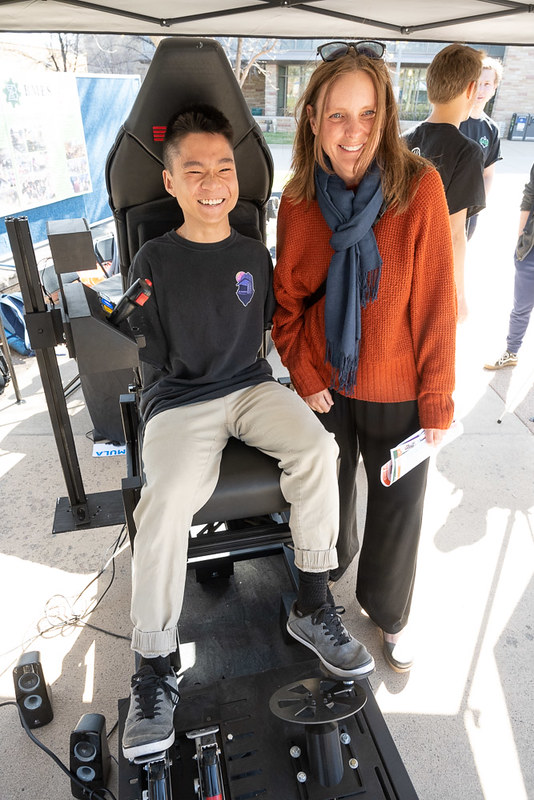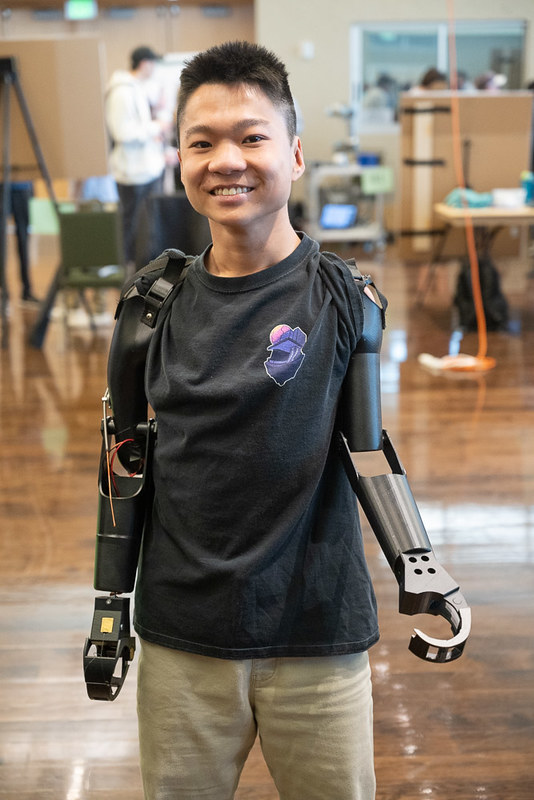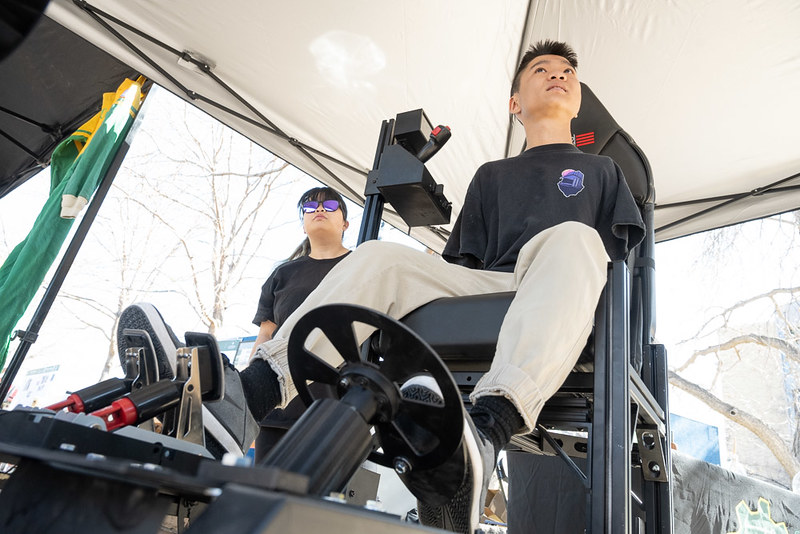Like most other 20-year-olds in college, Jian Cohen just wants his independence.
He wants to drive himself to places without taking the bus. He also wants to eat in public without people gawking.
Cohen, a sophomore in the College of Business, was born without hands, so these so-called simple tasks are daunting. This week, he got a boost toward his goals with the help of students from the Walter Scott, Jr. College of Engineering participating in E-Days. More than 400 students participated in the annual event to showcase their senior capstone projects.
Several biomedical engineering teams worked with Cohen over the past six months to design devices to improve his quality of life – one to help him eat with prosthetic arms, and one to help him learn to drive.
One senior design team built prosthetics so Cohen can eat using “hands.” Typically, he must use his feet to eat or use prosthetics that are twice as heavy, much more expensive, and tire him out.
Eating with his feet in public is embarrassing, he said. “In public places, I just don’t like the unnecessary attention that it brings,” said Cohen, who is from Durango and is majoring in computer information systems.
He tried on the new prosthetics for the first time three weeks ago and told the team that he felt like the super hero Iron Man. The students built Cohen’s prosthetics from scratch for about $800.
Cohen can use his shoulders to trigger sensors in the limbs that allow him to pick up utensils or food, said Dillon Fiore, who collaborated on the project with fellow seniors Mykala Coe, Amy Keisling, Kileigh Palmer and Zach Wilemon. All are graduating in May with biomedical/mechanical engineering degrees with the exception of Palmer, who will get a degree in biomedical/chemical and biological engineering.
“He’s really happy with it, and that’s what matters the most,” Fiore said.
Photos by John Eisele/CSU and video by Ron Bend/CSU.
Innovations a ‘game-changer’ for student
Heather Zoccali, whose son is best friends with Cohen, teared up watching him eat a piece of bread with his new limbs at E-Days on Monday, April 24, in the Lory Student Center ballroom. Cohen was just grinning ear to ear.
“That smile has been a long time coming,” said Zoccali, who helped connect Cohen with CSU through a mutual friend of Stu Tobet, director of the School of Biomedical Engineering. “It has been such a source of pain for him, and he’s been turning it into power.”
Separately, students involved in the CSU chapter of the Biomedical Engineering Society volunteered to design a driving simulator to help Cohen eventually learn to drive and earn a driver’s license. He has always wanted to drive but was told the adaptive technology was too expensive.
Using the simulator like a video game, Cohen can steer himself with his feet on a virtual race course. The simulator was donated by the Formula SAE team and retrofitted by the student organization – a group of biomedical engineering students ranging from first-years to juniors who volunteered on the project.
“This is honestly a game-changer for me,” Cohen said with a big grin while demonstrating the simulator on the LSC plaza Monday afternoon.
The students want to continue the project with Cohen, said Ian Lohrisch, team leader: “We have intentions to build this system in a full-size car and test in the near future.”
Sam Bechara, an assistant professor of mechanical engineering, served as the team adviser on both projects. Watching the simulator on the plaza Monday morning, Bechara was thrilled for his students and just as excited as they were.
“This is amazing! These are very tenacious, hardworking and community-minded students,” Bechara said. “They deserve a lot of credit.”


